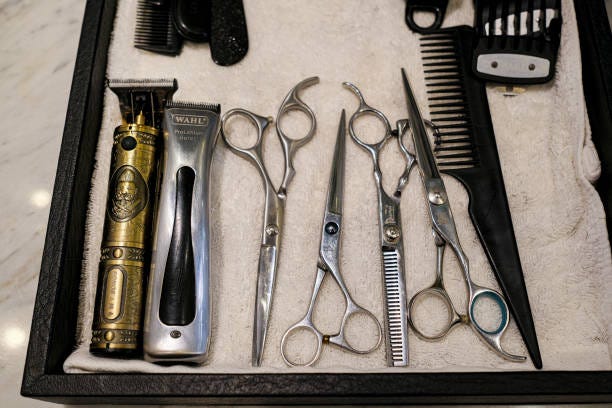- Carlos Thurman's "religious liberty and expression" were violated, according to the ACLU of Kentucky.
- Northpoint Training Center, in Boyle County, Kentucky, instituted a policy for inmates' hair to be "searchable."
- Thurman, a Rastafarian, had filed a grievance against the prison's policy, arguing it was unconstitutional.
An inmate at a Kentucky prison has filed a discrimination lawsuit after he says his dreadlocks were forcibly cut by guards.
Carlos Thurman, 50, is suing the Northpoint Training Center in Boyle County, Kentucky, after his hair was cut last April, according to the ACLU of Kentucky filed which filed the complaint on Thurman's behalf.
Thurman, a practicing Rastafarian, had raised grievances against the prison's policy regarding hair being "searchable."
In a February memo, the facility ordered that all incoming and outgoing inmates "must have searchable hair, regardless of length," according to to the federal lawsuit.
"Braids, corn rolls[sic], dreadlocks, etc. are not permitted if they are not searchable," Northpoint Training Warden Brad Adam said in a memo in the complaint. Inmates would have a "reasonable" amount of time" — or 30 minutes — to be presented with the option of removing their hair, the lawsuit says, citing the memo. If an inmate refused, then "use of force" be approved for a "cell entry team" to remove the hair.
"If a white inmate with long hair down his back gets into a fight with a Black inmate with dreads, cornrows or braids, the white inmate will be allowed to keep his hair, [but] the Black inmate will have to get his hair cut. Where is the fairness?" Thurman wrote in his 2021 grievance per USA TODAY.
During an abrupt transfer in the early hours of April 30, 2021, Thurman "was awoken and told to pack his things because he was being transferred to another facility. This was the first he knew of the transfer," the lawsuit says.
It was during this transfer process that guards informed Thurman that his dreadlocks would need to be cut prior to his transfer, the lawsuit alleges.
According to the lawsuit, "prison officials did not attempt to search his hair before ordering that it be cut." Thurman objected, but "fearing further harassment or even physical retaliation" he gave in to "forcible cutting" of his locks but requested the process be recorded.
"In forcibly cutting his dreadlocked hair without attempting to utilize any of the available less restrictive means to satisfy the prison's security interest, prison officials violated Mr. Thurman's rights under the Religious Land Use and Institutionalized Person Act," the lawsuit alleges.
Thurman's "religious liberty and expression" were violated, according to the ACLU of Kentucky.
"Prison policies may not infringe on sincerely-held religious beliefs unless it can be shown that it's the least restrictive means possible," Corey Shapiro, legal director for the ACLU of Kentucky, said in May.
